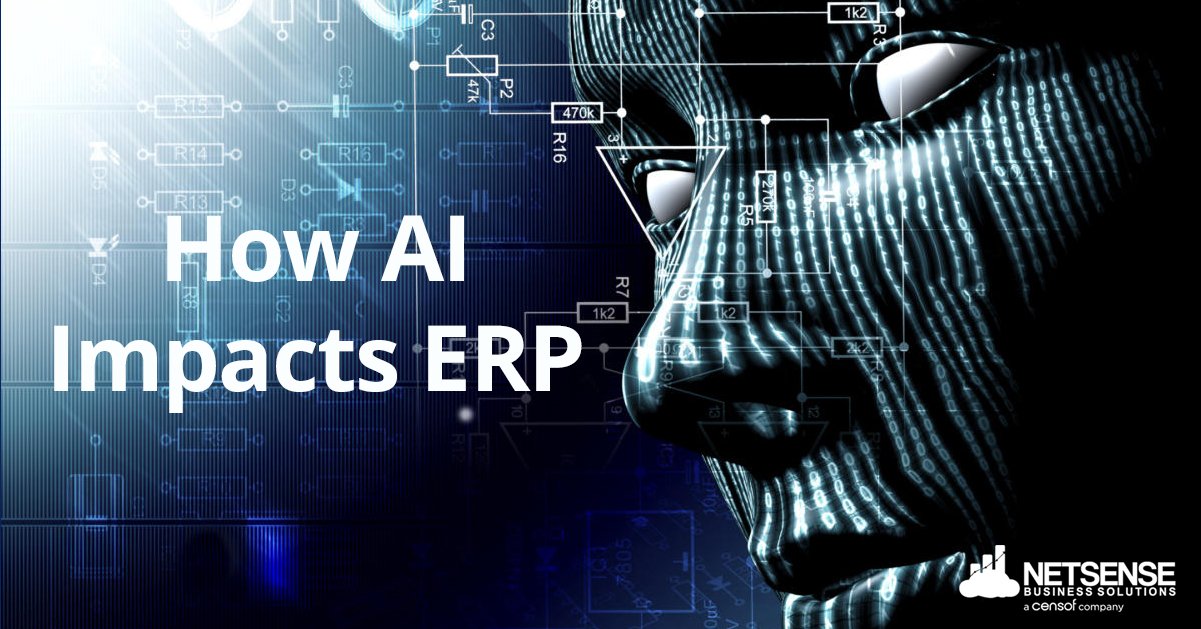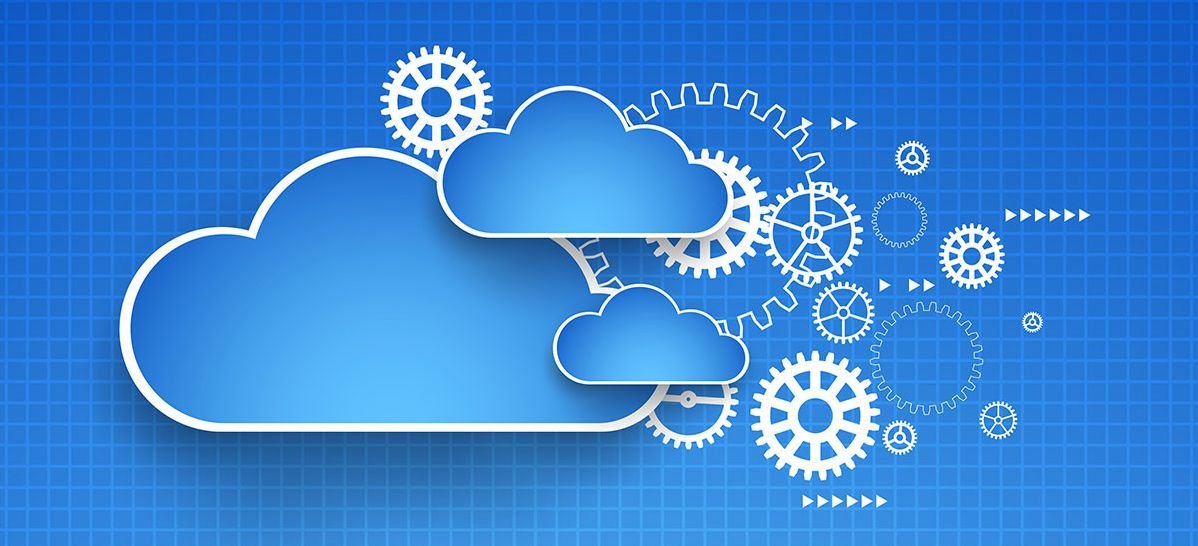The advancement in the usage of Artificial Intelligence (AI) within the enterprise system ecosystem has always created a buzz among industries across the world. Artificial intelligence and machine learning are showing excellence in optimising operational models and managing business operations with ease and accuracy. In fact, Gartner predictions reveal that by 2021, 80% of emerging technologies will utilise artificial intelligence as a key component. Since this technology is going to become highly prevalent in the coming years, it is a viable option to optimise your ERP (Enterprise Resource Planning) system for fast-forward AI to gain a competitive edge over others. AI in ERP software offers real-time data insights, allowing companies to enhance their operational efficiency, maximise ROI, and reduce overall costs. Impact of Artificial Intelligence (AI) on ERP System AI-powered ERP systems can positively affect the core operations of an organisation by streamlining everyday operations, reducing operational expenses, and eradicating human errors. It allows users to attain actionable data insights, superior access, financial controls, and smart production management. A technologically advanced ERP system assists companies in discovering and leveraging massive volumes of structured data, eliminating errors, and complex business challenges. ERP systems with AI can automate routine activities and identify patterns which gives organisations an unparalleled efficiency and functionality. Having a clear picture of your customers’ operational data, you can easily unlock the real potential of your data and manage your mundane tasks diligently. Three Areas that Can Be Managed Well with AI-Powered ERP System Data Management and Business Intelligence Leveraging your data to make rational decisions could add more value to your business. Industries like manufacturing can access real-time data, regular production updates, and customisable reports, at any given time to solve their toughest business problems and streamline decision-making processes.AI and machine learning can transform the way how ERP handles and optimises data. For instance, AI can evaluate the purchasing behaviour of different clients, allowing you to alter your inventories directly to meet the needs of customers. AI can also deliver historical data and behavioural patterns which can help you to create an accurate quote for your consumers. Automating Business Processes Routine tasks like month-end closing and invoice can consume hours or even days to complete, which may lead to delays and wasted resources. The ERP system can assist operators with scheduling, accounting, process automation, and inventory management, allowing the workforce to focus more on core objectives to achieve goals faster.AI technology can strengthen your ERP system’s performance, giving the ability to learn and make smart decisions, align routine tasks such as payroll administration and accounting effortlessly. AI-enabled ERP software detects the wasteful process and recommends a solution to minimise wasted resources, cut down the cost, and enhance efficiency. User Experience Some businesses may find ERPs complex and intimidating, especially when they are learning it right from scratch. In such scenarios, AI technology integrated into the ERP system proved to be very helpful in decision-making based on human input, which handles both structured and unstructured data and then delivers it in a clear and user-friendly manner. While ERP systems have effectively integrated different business aspects, artificial intelligence has created a channel for analysing a large amount of data, making useful predictions, and suggesting further steps for the smart decision-making process. As AI technology matures rapidly, now is the right time to opt for an AI-powered ERP system to enhance operational efficiency and user experience.
Should you go with an On-Premise ERP or a Cloud one? This is one complexity that all small businesses face in the initial stages of platform set-up. Reporting, analytics, automation, AI integration and all such aspects are to be integrated unified for increased efficiency and organizational process management. All these could be effectively managed when you have a strong Enterprise Resource System (ERP) platform. But picking what medium is a bog question, especially when you are new to this. Would a cloud based one offer more detailed and accurate analytics than an on-premise one? Which one would provide faster reporting? Which would help you in getting quick insights? Cloud ERP – Is it Better Than On-Premise? If you consult a professional ERP solution service provider, and considering the changing business market, scalability expectation, it is safe to assume that the cloud option is gaining more popularity and adoption. Not assured? Don’t worry. Cloud ERP is highly convenient and modern way for small and mid-size SMEs to incorporate in their flexible business culture. But how? Read on to know: Low Upfront Cost The most concerned issue for small businesses and start-ups are the added IT infrastructural costs, which they are looking to avoid, but don’t want to compromise on the tool’s capability and high-end solutions. Going the cloud way provides the best solution for them.As the cloud based ERP is hosted by the vendor, small business owners are saved from the complexity of infrastructural aspect. You can choose the monthly payment or annual subscription mode. It provides high scalability, less maintenance cost, and easy configuration. High Scalability for Future Your business structure, your client base, your market needs, customer demands and in core your business process won’t remain the same. So you are going to get your IT to change and adapt according to that. This is where we all look forward to a scalable solution that can grow with respect to the changing environment. This is rendered excellently by the cloud based solution, whereas with an on-premise platform you need to go for a complete overhaul. Easy and Quick Deployment You have a lot on your table right now, and can’t commit to stressful and time-consuming IT deployment. Worry not. Cloud based ERPs function over the internet and this is a basic infrastructural need all you have to arrange for. Improved Flexibility Today we look at technology and tools which can not only enable the business capacity to run at its full efficiency but also need the need of tomorrow’s expansion. We live and work in an environment today where we want a technological aspect to not just cover one basic, but be able to fulfil multi-facets. This efficient model helps drive future growth, easy adaption of mew resources into the system. Higher Mobility A workplace isn’t just your office desk. It can be the living room of your home, a café, your tablet or smartphone. You want to be connected to all the specific points of your business at all times from anywhere. Cloud based ERP makes this a breeze for you. High Data Security It has been observed over the years that with strengthened internet policies, improved network architecture, and focus on cloud as the business enabler, we have ERP platforms with remote access that provides enhanced data security.Cloud based technological architecture has come a long way, and it is not something to fear anymore. As small business owners have a lot to ponder over and limited budget, leveraging the cloud benefits will prove not missing out on the technological capability all the while making it simplified and resourceful. You can adopt Acumatica ERP implemented that helps you get the best from a resourceful solution while also making best use of streamlined and cohesive online process.

